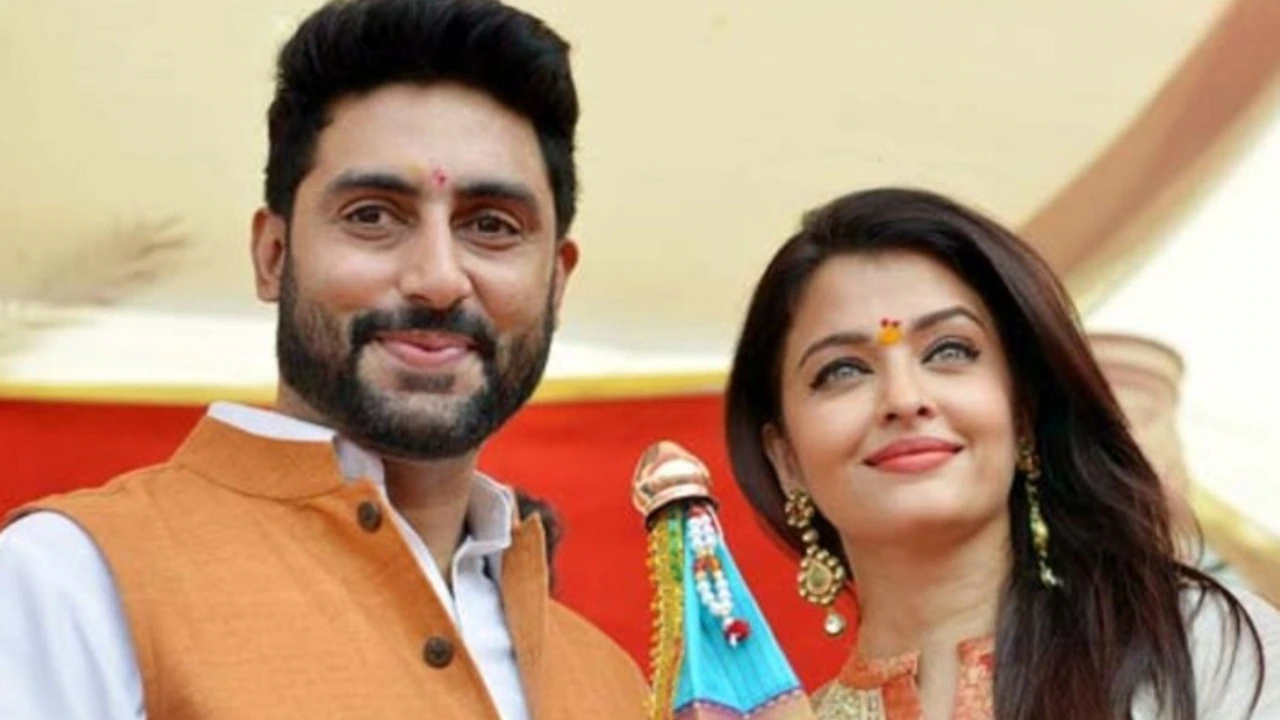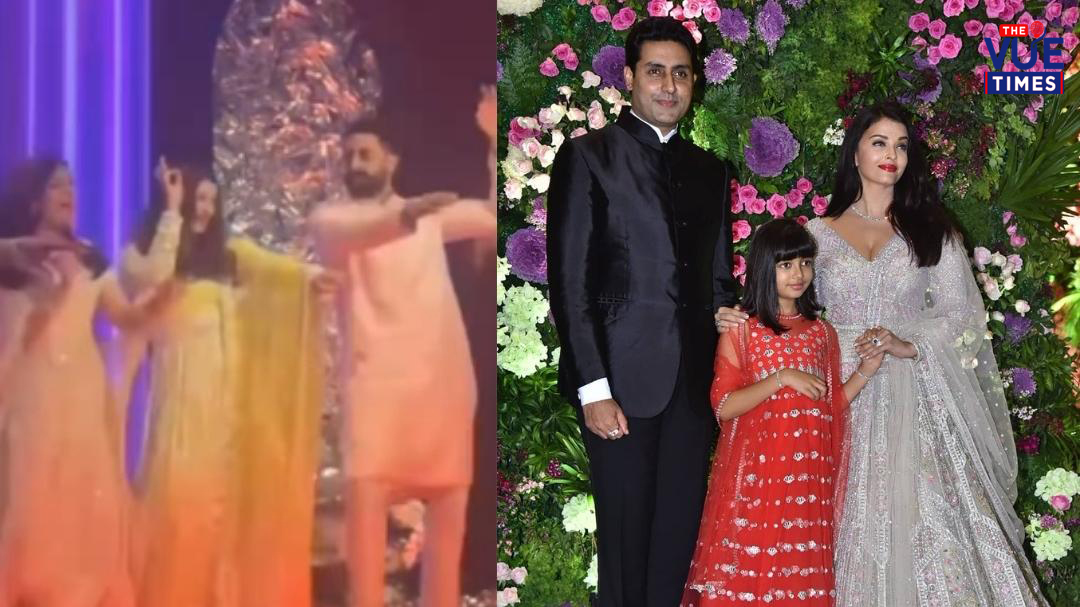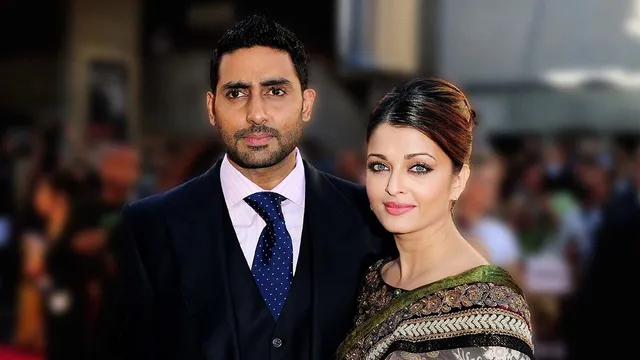Bollywood power couple Aishwarya Rai Bachchan and Abhishek Bachchan have made headlines once again, this time for a legal action that underscores their determination to protect their personal and professional reputation. The couple has filed a lawsuit against global tech giant Google, seeking damages amounting to ₹4 crore. The legal move comes in response to alleged defamatory and misleading content about them circulating online through Google’s search engine and associated platforms. This lawsuit highlights not only the challenges celebrities face in the digital age but also raises broader questions about accountability and regulation in online media.
The suit, filed in a Mumbai court, asserts that Google has facilitated access to material that harms the couple’s reputation, privacy, and professional interests. According to court documents, the Bachchans claim that inaccurate articles, false rumors, and manipulated content are being indexed and displayed prominently in search results, often appearing on the first page when users search for their names. The couple alleges that despite repeated requests to have this content removed, Google has failed to take adequate action.
Aishwarya Rai Bachchan, internationally acclaimed for her work in Indian cinema and her recognition as a former Miss World, and Abhishek Bachchan, a prominent actor and producer, have consistently maintained a dignified public image. Both have been associated with professional achievements, philanthropic efforts, and brand endorsements. The lawsuit argues that the circulation of false or misleading material not only undermines their reputation but also impacts their contractual obligations with various brands and organizations that associate themselves with their image.
The lawsuit also touches upon broader issues regarding online content and the responsibility of platforms. In their petition, the Bachchans point out that Google, as a major search engine and technology platform, plays a critical role in curating information and shaping public perception. By allowing defamatory content to remain accessible, Google is, according to the plaintiffs, indirectly facilitating reputational harm. The legal team has argued that search engines must exercise due diligence and be responsive to requests for removal of harmful or inaccurate content, especially when it involves public figures who have limited means to counteract misinformation once it spreads widely.
The Bachchans’ legal action is not unprecedented in the global context. Celebrities and public figures have increasingly turned to courts to combat the spread of false information online. Lawsuits against technology platforms and social media giants, including Google, Facebook, and Twitter, have set precedents regarding the responsibility of digital intermediaries and the enforcement of defamation laws in cyberspace. In India, the evolving legal landscape around online defamation, data privacy, and intermediary liability is providing avenues for individuals to seek redress for reputational harm.
Aishwarya and Abhishek’s legal team has argued that while freedom of expression is fundamental, it does not extend to the publication or amplification of knowingly false or misleading material that can damage reputations. The petition cites several instances where misleading articles, manipulated photographs, or sensationalist reporting have been prominently featured in search results. The couple contends that these materials have caused distress and adversely affected their public image, particularly in the context of high-profile events such as film promotions, award functions, and international appearances.
The lawsuit reportedly seeks both injunctive relief — to prevent further circulation of such content — and monetary compensation amounting to ₹4 crore. The amount, the petition explains, reflects the cumulative damage to their professional and personal standing over time, including lost endorsement opportunities, emotional distress, and reputational injury. Lawyers familiar with celebrity litigation suggest that while the claimed amount is significant, it is commensurate with the stature and earnings of the individuals involved.
Google, as the defendant, is expected to respond to the lawsuit by outlining its policies on content moderation, user-generated content, and removal requests. Historically, Google has maintained that it functions as an intermediary and that it does not create the content itself. However, courts in India have increasingly held that intermediaries must act promptly when notified of illegal, defamatory, or harmful material. The case will likely examine the extent of Google’s responsibility and the adequacy of its response mechanisms when approached by individuals seeking removal of content that could harm their reputation.
Legal experts observing the case note that it touches upon the delicate balance between protecting free speech and ensuring accountability for online content. Platforms like Google have argued that imposing excessive liability on them could stifle information sharing and innovation. At the same time, public figures and ordinary citizens have highlighted the need for mechanisms to swiftly address defamation, misinformation, and privacy violations online. The Bachchans’ lawsuit may contribute to clarifying these responsibilities in the Indian legal context.
The case also shines a spotlight on the modern challenges faced by celebrities in maintaining their public image. In an era dominated by social media, instant news, and user-generated content, misinformation can spread rapidly, often reaching millions within hours. While traditional media outlets are bound by editorial standards, online platforms and aggregators like Google operate at a different scale and speed, making reputational management increasingly complex. Aishwarya and Abhishek’s legal action underscores that public figures must now contend not only with journalists but also with digital algorithms and search engine results that shape public perception.
In recent years, both Aishwarya and Abhishek Bachchan have taken proactive steps to manage their online presence. They engage with fans on social media, participate in verified interviews, and maintain a carefully curated digital footprint. Despite these efforts, false information continues to circulate, highlighting the challenge of controlling narratives in the digital age. The lawsuit against Google emphasizes that while celebrities can curate their own content, they require cooperation from major platforms to prevent the amplification of harmful material.
The case has sparked discussion among legal commentators and the media about the broader implications for online intermediaries. If successful, the lawsuit could set a precedent for how search engines and content platforms are expected to respond to complaints regarding defamatory or misleading material. It could also influence policies on content moderation, takedown procedures, and liability for reputational harm. Observers note that the judgment may have wider ramifications not only for celebrities but also for ordinary users seeking redress for false information circulated online.
Aishwarya Rai Bachchan and Abhishek Bachchan’s choice of Mumbai courts for filing the lawsuit is strategic, given the city’s status as India’s entertainment capital and its judicial infrastructure for handling high-profile cases. Lawyers specializing in media law highlight that courts in Mumbai have considerable experience dealing with defamation and privacy issues, which may facilitate a nuanced assessment of both the claims and Google’s obligations.
In addition to the legal proceedings, the lawsuit has triggered a public conversation about digital responsibility, ethical journalism, and the impact of misinformation. Social media platforms and search engines wield significant influence over public opinion, and high-profile lawsuits like this one bring attention to the need for accountability and transparent content moderation policies. The case illustrates that even the largest global tech companies can be held accountable in national courts when their platforms contribute to harm.
The Bachchans’ legal action also underscores the intersection of celebrity, privacy, and technology in contemporary India. As public figures, they are subject to scrutiny, but the lawsuit demonstrates that scrutiny should not cross the line into falsehood, defamation, or harassment. By asserting their rights in court, Aishwarya and Abhishek are not only seeking personal redress but also highlighting the responsibilities of tech giants in maintaining a fair and accurate digital ecosystem.
Furthermore, the case is a reminder that reputational harm in the digital age can have tangible consequences. Endorsements, film projects, sponsorships, and public perception are closely tied to an individual’s public image. Negative or misleading content, when amplified by search engines and online platforms, can lead to economic, emotional, and social costs. The ₹4 crore claim reflects both the personal and professional stakes involved for high-profile public figures.
Legal analysts anticipate that Google’s defense will likely hinge on its role as an intermediary and its adherence to existing content policies. The court may need to weigh the extent to which Google exercises control over search results, algorithmic rankings, and the availability of third-party content. Additionally, the case could explore whether the existing Indian legal framework adequately addresses the complexities of reputational harm in the digital environment and what obligations global platforms have to local users.
Public reaction to the lawsuit has been mixed, with some applauding the Bachchans for standing up against online misinformation, while others question whether celebrities should have legal remedies beyond those available to ordinary citizens. Advocates for stronger digital accountability argue that if Google can be held liable for defamation claims from high-profile figures, it sets a precedent that encourages platforms to take content moderation seriously for all users.
The timing of the lawsuit is also notable. It comes at a moment when discussions about online regulation, intermediary liability, and data privacy are gaining momentum in India and globally. Governments and regulatory bodies are increasingly scrutinizing the role of tech companies in the spread of misinformation, hate speech, and privacy violations. The Bachchans’ case aligns with these broader concerns and may contribute to shaping legal norms and expectations for online platforms.
In conclusion, Aishwarya Rai Bachchan and Abhishek Bachchan’s ₹4 crore lawsuit against Google reflects the evolving challenges of reputation management in the digital era. The case underscores the responsibility of tech platforms to respond to complaints about defamatory or misleading content and highlights the legal avenues available to public figures seeking redress. Beyond its immediate implications for the couple, the lawsuit raises important questions about accountability, privacy, and the ethical responsibilities of global technology companies operating in India.
As the case unfolds, it is likely to attract significant media attention and provoke discussion about the balance between free speech, technological innovation, and protection of individual rights. Whether it results in monetary compensation, removal of content, or new guidelines for digital intermediaries, the lawsuit marks a critical moment in the intersection of celebrity, law, and technology in India. For the Bachchans, it is not just a legal battle but a broader statement about asserting control over their public image and demanding responsibility from the platforms that shape global perception.













